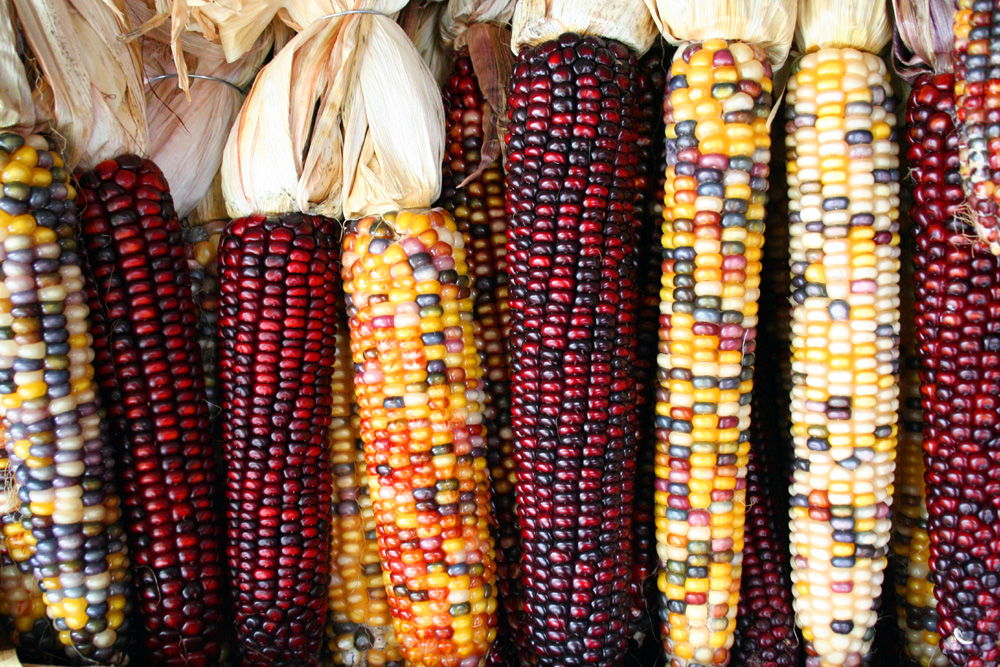US escalates trade dispute over GM corn, challenges Mexico’s food sovereignty
IATP | 17 August 2023
US escalates trade dispute over GM corn, challenges Mexico’s food sovereignty
by Cecelia Brackey
MINNEAPOLIS/Washington, D.C.—Today, the United States Trade Representative (USTR) office escalated its complaint against Mexico’s ban on genetically modified (GM) corn, asserting it as a potential violation of the U.S.-Mexico-Canada Agreement (USMCA). USTR filed a request for the formation of a dispute resolution panel under the USCMA framework. The Institute for Agriculture and Trade Policy has analyzed the USMCA and believes that USTR is exaggerating the economic impacts on U.S. producers and that the agreement permits such precautionary policies to protect public health and the environment.
U.S. Secretary of Agriculture Tom Vilsack and the agribusiness sector have asserted that biotech and environment provisions within USMCA require Mexico to permit the importation of GM corn. However, these claims are false: A examination of the agreement reveals that “Mexico retains authority to adopt and implement policies to protect the environment and public health, preserve and enhance biodiversity, and respect Indigenous communities and lifestyles.”
USTR Katherine Tai has expressed unfounded concern that Mexico’s policies might disrupt billions of dollars in agricultural trade between the countries. No credible evidence exists to support this claim, as determined by analysis from IATP of the economic modeling study that underpins the USTR claim. The economic study was commissioned by CropLife and other agribusiness entities in the U.S. and Mexico, all with strong economic interests in blocking Mexico’s restrictions on GM corn.
In response to U.S. officials’ critique of Mexico’s ban on GM corn as not founded in science, the Mexican government organized a robust series of webinars this spring that presented substantive evidence on the human health concerns surrounding GM food. For years, Mexico’s national science agency has maintained a public database of evidence underlying the concerns about public health and corn biodiversity from both GM corn and the herbicide glyphosate. A synthesis report of these scientific finds is due out shortly.
The U.S. government has refused Mexico’s offer to collaborate in an examination of the science, particularly in relation to less-well-studied concerns about the consumption of animal products fed on GM corn and glyphosate. Victor Suarez, Mexico’s Undersecretary of Agriculture for Food Self-Sufficiency, told Reuters the U.S. thinks it can unilaterally determine the science of the issue.
“U.S. agribusiness exporters, the biotech industry and their allies in Congress are pushing this case, intent on compelling Mexico to accept U.S. exports without debate. It is an assault on Mexico’s food sovereignty,” says Karen Hansen-Kuhn, IATP director of trade and international strategies and author of an op-ed on Mexico’s rights under the USMCA. “Trade rules should provide a forum to protect and advance rights, rather than block them.”
“As Mexican Economy Minister Raquel Buenrostro stated in response to the USTR request for technical consultations, Mexico’s decree is based on science, and she will challenge the U.S. government in the consultations to show ‘quantitatively, with numbers, something that has not occurred: that the corn decree has commercially affected U.S. exporters,’” says Timothy A. Wise, IATP senior advisor, whose op-ed summarizes the exaggeration of economic impacts from the Mexican measures. “The Mexican government will show what has occurred: Its cherished tortillas are being contaminated with glyphosate and GM corn. And they intend to put a stop to that.”
Beyond the immediate implications, the case could set precedent for other trade negotiations, potentially including the Indo Pacific Economic Framework negotiations, which will cover agriculture, as well as in current talks with Kenya. In addition, Colombia’s President Gustavo Petro is asking for a renegotiation of its trade agreement with the U.S., in part due to rising dependence on unfairly priced corn exports from the U.S.






